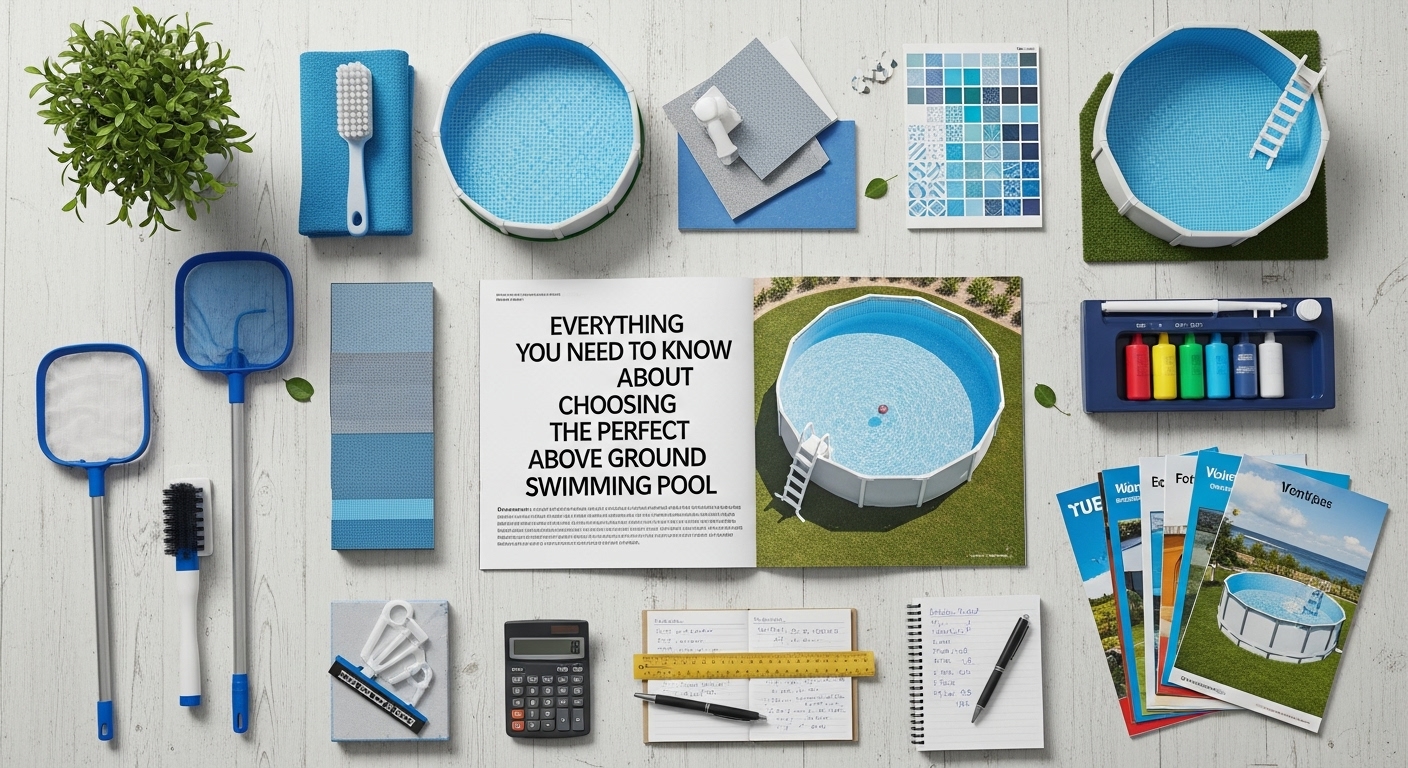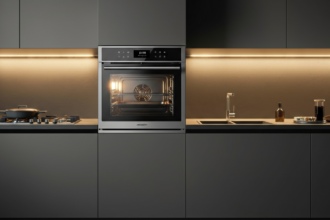Choosing an above ground swimming pool can be an exciting endeavour. For many homeowners, it represents an opportunity to enhance their outdoor living space and provide family and friends with a source of entertainment and relaxation. However, the variety of options available can make the decision-making process daunting.
Benefits of Above Ground Swimming Pools
Above ground swimming pools offer a range of benefits that make them a popular choice among homeowners. Firstly, they are generally more affordable than in-ground pools, making them accessible to a wider audience. Additionally, they are easier and quicker to install, allowing homeowners to enjoy their pool sooner after purchase.
Another advantage is the flexibility in location and size. Above ground pools can be installed in a variety of settings, which can be particularly beneficial for those with challenging landscapes or limited space. The pools can also be dismantled and relocated if necessary, offering a level of convenience that in-ground pools cannot match.
Materials and Construction
Understanding the materials used in above ground pool construction is crucial in making an informed choice. The most common materials include steel, resin, and aluminium. Steel pools are known for their durability and strength, although they may be prone to corrosion over time unless properly treated.
Resin pools are resistant to rust and can withstand various weather conditions, making them a popular choice. Aluminium pools offer similar advantages, with the added benefit of being lightweight and easier to assemble. Each material comes with its own set of pros and cons, and the selection would depend on the specific needs and budget of the homeowner.
Size and Shape Considerations
The size and shape of an above ground swimming pool are other critical factors to consider. Square, oval, and round shapes are commonly available, each offering different aesthetic and functional benefits. Round pools generally offer more swimming area for the same perimeter length, while oval pools can fit better in narrower spaces.
As for size, it is important to consider the number of people who will use the pool regularly. A larger family or frequent entertainers might benefit from a larger pool, while a smaller pool could suffice for individual or couple use.
Safety and Maintenance
Safety should always be a priority when considering any type of swimming pool. Above ground pools typically require fencing and ladders to ensure safe access and use. Safety covers are also advisable, particularly in households with young children or pets.
Maintenance is another aspect that cannot be overlooked. Researching and understanding the necessary upkeep, such as filtering and chemical balance, ensures that the pool remains a clean and safe environment.
Budgeting for Your Pool
It is important to set a realistic budget when purchasing an above ground swimming pool. Beyond the initial cost of the pool itself, consider expenses related to installation, accessories, and ongoing maintenance. Some retailers offer packages or specials that include installation or maintenance services, which might be worth exploring.
Budgeting also involves comparing different brands and models to ensure the best value for the investment. Reading reviews and seeking expert advice can provide insights into the long-term satisfaction of other pool owners.
Expert Advice and Resources
When in doubt, consulting with a professional can provide clarity and support in making the right decision. Many retailers offer expert advice and resources to help guide you through the selection process. Consider reaching out to businesses that specialise in above ground swimming pools for tailored advice.
Retailers often have showrooms where prospective buyers can see different models and features in person, providing a better understanding of what each option offers.
Environmental Considerations
While planning your pool purchase, it is essential to consider the potential environmental impact. Some above ground swimming pools come with eco-friendly features, such as energy-efficient pumps and solar heating, reducing their carbon footprint and long-term energy costs.
Choosing an eco-friendly option can not only help the environment but also reduce long-term operational costs, providing savings on utilities over time.
Installation and Setup
Another key consideration is the installation and setup of the above ground pool. The ground should be level for a safe and stable installation. Some homeowners may choose to hire professionals for installation, although many pools come with comprehensive instructions for DIY setups.
DIY installation can save money, but it is important to ensure that all steps are followed precisely to avoid issues later on. Professional installers can typically complete the installation more quickly and may offer warranties or guarantees on their work.
Conclusion
In conclusion, selecting the perfect above ground swimming pool involves several important considerations, from material and size to budget and environmental impact. By understanding these factors and consulting with professionals when necessary, homeowners can make a well-informed decision that meets their needs and provides years of enjoyment.

















